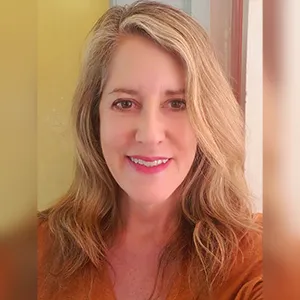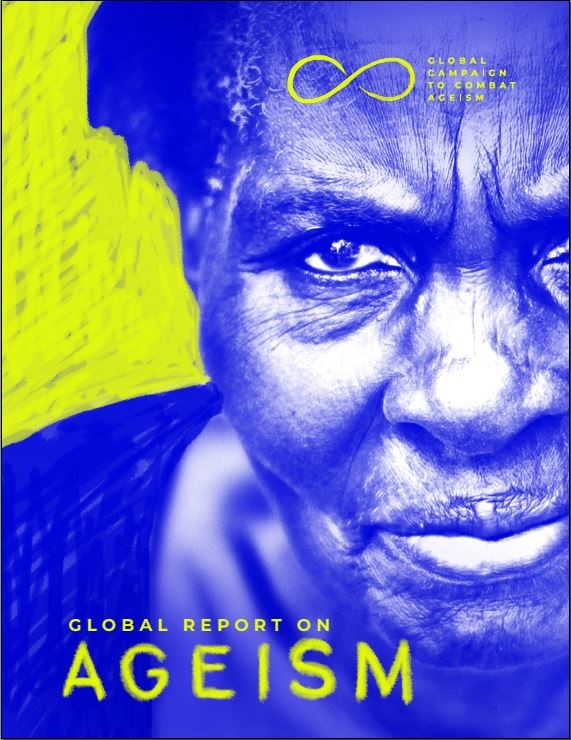We are delighted to launch our new communications tool, SENIORLAW INSIGHTS. Each month you’ll hear from one of the members of our team – our staff, board, partners – on a topic which we hope will make you think, and possibly take action in some way. Today’s topic: Aging and Ageism.
“Raise your hand if you are getting older.”
This is the opening line of many talks we give about law and aging, SeniorLAW Center and justice in aging. We ask it to break the ice with our audience and to underscore the universal condition of aging. There are few things that every one of us will experience, that binds us as humans. No matter our race, language, privilege, experience, education, profession, status….aging affects us all. If we live, we will age.
And yet ageism is rampant in our country and our world.
Ageism is one of the last forms of discrimination that is acceptable and rarely called out. Ageism is often excluded from Diversity Equity and Inclusion conversations and movements, despite its universal condition. From a purely selfish perspective, we should care and raise our voices against prejudices, stereotypes, harmful myths and derogatory language about and against aging and older people. “We” will one day be “them” and in fact, many of us already are!
At SeniorLAW Center, we see every day the diminished importance often given to the voices, needs, contributions and lives of older people. And yet, these are the people who raised us. Who built, led and defended our country and our communities. Who were the original modern advocates for civil rights, women’s rights, LGBTQ+ rights, voting rights, and equal rights. They are our history as well as our future. And they are us.
Recently, I helped lead a statewide legal training with leaders in the judiciary, health care and private and public interest law on capacity, decision making and preserving fundamental rights and autonomy. As a part of that, I presented on Ageism and its astounding impact on older people. I found The Global Report on Ageism, created by the UN and World Health Organization (WHO), which revealed that globally, 1 in 2 people are ageist against older people.
- What does that mean? Ageism refers to how we think (stereotypes), feel (prejudice) and act (discrimination) towards others or ourselves based on age. Ageism arises when age is used to categorize and divide people.
Age, in addition to gender and race, is one of the first things we notice about other people. Ageism often intersects and interacts with other forms of discrimination: sexism, racism, ableism. Ageism leads to harm, disadvantage and injustice.
Why should we care about Ageism? Simply put, it is destructive. Ageism pervades institutions, health and social care, the workplace, the media, our language, and the legal system. Ageism shortens lifespans. It increases isolation and loneliness. It reduces the quality of physical and mental health. Ageism restricts the ability of older people to express sexuality. Ageism increases the risk of violence and abuse against older people – a crisis we encounter and respond to every day. Ageism contributes to poverty and financial insecurity in older age.
These are astounding and devastating consequences. These are consequences our work fights against, around which our mission and organization are founded.
How can we fight ageism?
Ageism is a stubborn and pervasive prejudice: question it.
Our culture is rampant with anti-aging slogans, products, stereotypes, memes, jokes. Changing our language is one of the first and easiest things we can do.
Let’s reframe how we talk about aging and older people. Challenge others when you hear ageist language, sentiment, or humor. Older people are individuals with rich and diverse lives, accomplishments, histories and experiences, to be acknowledged as mature adults, not monolithic and not to be made fun of or treated like children.
Challenge myths. Aging is a diverse and individualized process, not monolithic. Most older adults maintain quite good health and cognitive functioning. Most older adults (>93%) live in community, not in institutions. Despite negative stereotypes, older people tend to report greater happiness and life satisfaction compared to younger people (American Psychological Association March 2023).
Take note of and shift images and representations of aging in our workplaces, in our media, in our communications. Celebrate the lives and contributions of older people.
Recognize that treatment of older people affects every aspect of a person’s health and well-being, and their access to justice.
WHO also recommends we pursue the 3 strategies of policy and law, educational activities, and intergenerational interventions. Systemic activities that we pursue with partners near and far.
Join us in the fight against Ageism. For your loved ones, family, neighbors, colleagues, the patriarchs and matriarchs of our communities…and yes, for yourself. Join us because it is just, and it is the future…each of our futures, should we have the privilege of long lives.
If we live, we will age. And don’t we want justice to be there when we arrive?
SeniorLAW Center seeks justice for older people by using the power of the law, educating the community and advocating on the local, state and national levels. We serve over 10,000 older people each year. Our vision is a world that values older people, hears their voices and guarantees their rights. SeniorLAW Center changes individual lives and works to change systems to promote justice, security, and independence for older Americans and their families. To donate to SeniorLAW Center, visit SeniorLAWCenter.org/Donate or click below.



